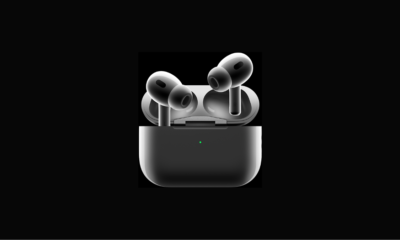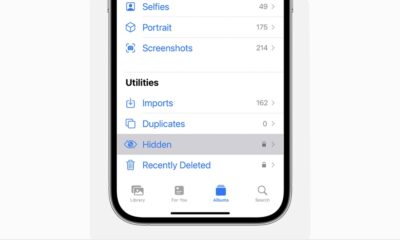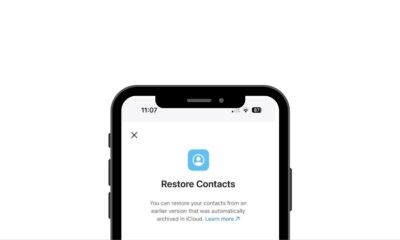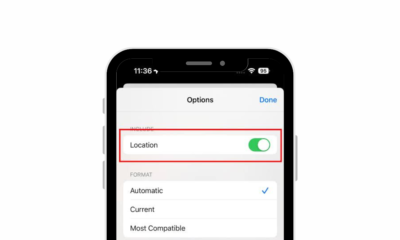How To
How To Speed Up A Slow Smartphone

Is your smartphone feeling sluggish and unresponsive? It’s a common issue that many smartphone users face over time.
Fortunately, there are various ways to revitalize your device and make it feel like new again. In this comprehensive guide, we will explore a range of tips and tricks to help you speed up your slow smartphone.
Why Do Smartphones Slow Down?
Before we dive into the solutions, it’s essential to understand why smartphones slow down in the first place. Several factors can contribute to this frustrating issue:
- Limited Storage Space: Over time, your smartphone accumulates a plethora of apps, photos, videos, and other data that can eat up your storage space, leading to slower performance.
- Outdated Software: Failing to keep your device’s operating system and apps up to date can result in compatibility issues and slower performance.
- Background Apps: Apps running in the background can consume resources, slowing down your phone.
- Cache Buildup: Apps generate cached data to enhance performance, but over time, these caches can become bloated and slow down your device.
- Hardware Aging: As your phone’s hardware ages, it may not be able to keep up with the demands of newer software and apps, resulting in sluggish performance.
Now that you understand the possible causes, let’s explore various methods to speed up your smartphone:
Free Up Storage Space
One of the most effective ways to speed up your smartphone is to clear out unnecessary files and apps. Here’s how to do it:
- Delete unused apps.
- Transfer photos and videos to cloud storage or a computer.
- Clear app caches and data in the settings.
- Consider using a file manager app to help identify and delete large files.
Update Your Software
Keeping your smartphone’s software up to date is crucial. Software updates often include performance enhancements and security fixes. To update your device:
- Go to Settings > System Updates and check for updates.
- Keep your apps updated through the respective app stores (Google Play Store for Android, App Store for iOS).
Manage Background Apps
Apps running in the background can slow down your phone. You can manage them by:
- Closing unused apps: On most devices, swipe away apps from the recent apps menu.
- Restrict background data usage: In settings, you can limit apps from using data in the background.
Clear App Caches
Apps store temporary data in caches to improve performance, but these can become excessive. To clear them:
- Go to Settings > Apps (or Application Manager).
- Select an app and tap “Clear Cache.”
Optimize Your Home Screen
Widgets and live wallpapers on your home screen can consume resources. Consider simplifying your home screen by:
- Removing unnecessary widgets.
- Using a static wallpaper instead of live or animated ones.
Disable or Uninstall Bloatware
Many smartphones come with pre-installed apps that you might not use. These are often referred to as “bloatware.” You can disable or uninstall them in your device’s settings.
Restart Your Phone Regularly
A simple but effective solution. Restarting your phone can clear its memory and close any lingering processes that might be slowing it down.
Factory Reset
If your phone is still slow after trying all these methods, you can consider a factory reset. Be sure to back up your important data before doing this. A factory reset will wipe your phone clean, including apps and settings.
Manage Animations
Reducing or turning off animation effects can make your phone feel more responsive. To do this:
- Go to Settings > About Phone > tap on “Build Number” several times to unlock developer options.
- In developer options, find “Window animation scale,” “Transition animation scale,” and “Animator duration scale,” and set them to 0.5x or turn them off completely.
Replace Your Battery
If your smartphone’s battery has significantly deteriorated, it might be impacting performance. Consider replacing the battery or using an external battery pack to keep your device running optimally.
Upgrade Your Hardware
If all else fails, and your smartphone is several years old, it might be time to consider an upgrade. Newer models with faster processors and more RAM will naturally provide a smoother experience.
A slow smartphone can be frustrating, but there are various solutions to help speed it up. By following the tips outlined in this guide, you can enjoy a faster and more responsive device.
Remember to regularly maintain your smartphone to ensure it continues to perform well over time.
Whether you are freeing up storage, updating software, or managing background apps, these steps can make a significant difference in your smartphone’s performance.
So, give your smartphone the care it deserves and enjoy a snappier user experience.
Frequently Asked Questions
Q1: How can I close background apps on my smartphone?
- A1: On most smartphones, you can close background apps by accessing the recent apps menu (usually a square or rectangular button) and swiping away or closing apps.
Q2: Are there apps that can help optimise my smartphone’s performance?
- A2: Yes, there are optimisation apps available, but choose reputable ones. They can help clear cache, manage apps, and improve overall performance.
Q3: Can I reduce animation effects to speed up my smartphone?
- A3: Yes, reducing or turning off animation effects in your phone’s settings can make transitions faster and contribute to a smoother experience.
Q4: Can a slow smartphone be caused by malware?
- A4: Yes, malware can affect performance. Use reputable antivirus apps to scan for and remove any malicious software.
Q5: How do I optimise my smartphone for gaming performance?
- A5: Close background apps, reduce screen brightness, and consider using gaming mode settings (if available) to prioritise performance during gameplay.
Q6: Can insufficient RAM cause a slow smartphone?
- A5: Yes, insufficient RAM can lead to slowdowns. Avoid keeping too many apps open simultaneously and consider upgrading to a device with more RAM.
Tips & Tricks
How to Factory Reset Your Android Phone: A Simple Guide
How To
How to Activate 3D View on Google Maps

Google Maps offers a plethora of features to enhance your navigation experience, and one such feature is the ability to explore locations in 3D. By activating the 3D view, users can immerse themselves in a more lifelike representation of cities, landscapes, and landmarks. In this comprehensive guide, we’ll walk you through the step-by-step process of turning on 3D view on Google Maps across different platforms.
For Desktop Users
1. Open Google Maps: Launch your preferred web browser and navigate to the Google Maps website.
2. Switch to Satellite View: On the bottom-left corner of the screen, locate the square box labeled “Satellite” and click on it. This will switch the map view to satellite imagery.
3. Activate 3D View: While in satellite view mode, you’ll notice a “3D” button on the right-hand side of the screen, typically next to the compass icon. Click on this button to activate the 3D view. The map will tilt, providing a three-dimensional perspective.
4. Navigation and Exploration: Use your mouse to navigate in 3D. Click and drag to pan around the map. Hold down the Ctrl key (Cmd on Mac) and drag your mouse to adjust the angle or rotate the view. Scroll up and down to zoom in and out.
For Mobile Users (Android and iOS):
1. Open the Google Maps App: Launch the Google Maps app on your smartphone. If you don’t have the app installed, you can download it from the Google Play Store (for Android) or the Apple App Store (for iOS).
2. Select Satellite View: Once the app is open, tap on the layer icon, typically located in the upper-right corner of the screen. This will open the map type selection menu. Choose “Satellite” from the list of options.
3. Enable 3D View: Unlike the desktop version, activating the 3D view on mobile devices requires a different gesture. Use two fingers to swipe up on the screen. This action will tilt the view, transitioning it into 3D mode.
4. Explore in 3D: Navigate around the map by dragging with one finger. Pinch your fingers together or spread them apart to zoom in and out. To rotate the view, twist two fingers on the screen.
The 3D feature on Google Maps is a valuable tool for exploring and understanding geographical locations in a more immersive way. Whether you’re planning a trip, studying urban landscapes, or simply satisfying your curiosity, activating the 3D view can enhance your mapping experience significantly. By following the step-by-step instructions provided in this guide, you can easily unlock the full potential of Google Maps’ 3D capabilities across desktop and mobile devices. Happy exploring!
How To
How To Deactivate the Private Number Feature
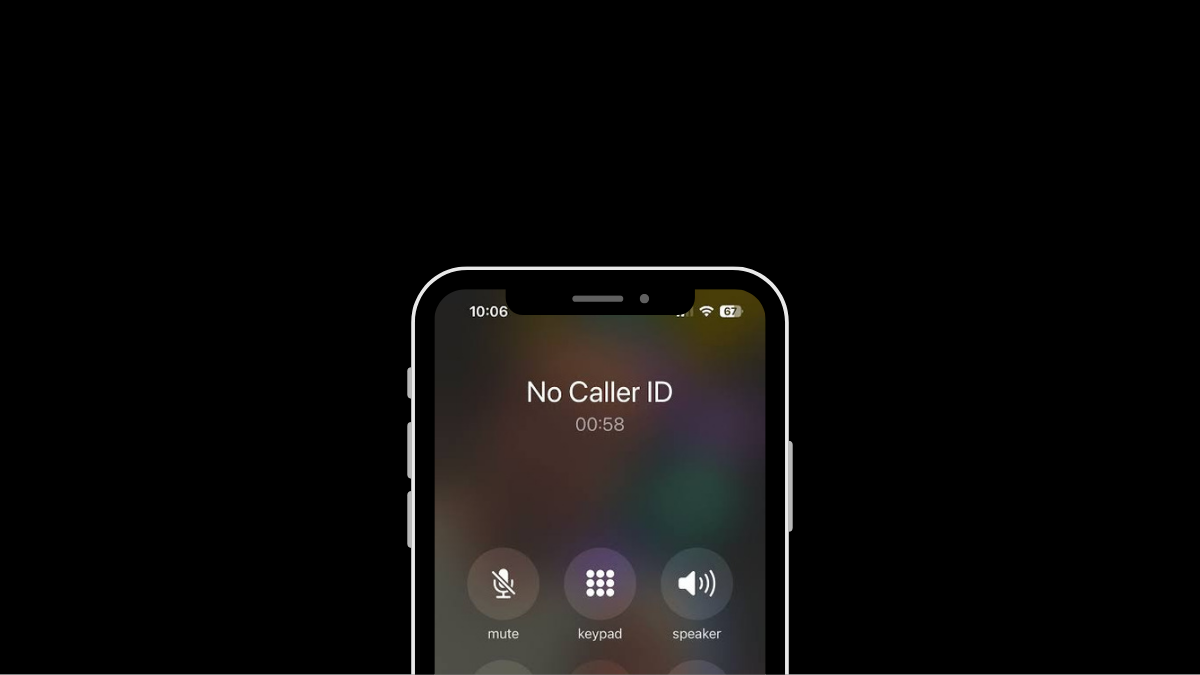
Having your phone number appear as “Private” or “Unknown” can be useful for maintaining privacy, but there are times when you might want to deactivate this feature. Whether you’re making important calls to friends, family, or businesses, having your number visible can enhance communication and ensure your calls are recognized and answered promptly. This guide provides step-by-step instructions for deactivating the private number feature on both iPhone and Android devices, empowering you to take control of your caller ID settings.
Deactivating Private Number on iPhone:
1. Open Settings: Locate and tap the Settings app on your iPhone’s home screen.
2. Access Phone Settings: Scroll down and tap on the “Phone” option in the Settings menu.
3. Caller ID Settings: Within the Phone settings, find and tap on the “Show My Caller ID” option.
4. Toggle Caller ID: Tap the toggle switch next to “Show My Caller ID” to turn it on (ensure it’s green). This action will make your phone number visible to recipients of your calls.
5. Verification: After enabling the setting, make a test call to confirm that your number now appears on the recipient’s caller ID.
6. Completion: Once your caller ID is successfully displayed, the private number feature is deactivated on your iPhone.
Deactivating Private Number on Android:
1. Open Phone App: Launch the Phone app on your Android device as if you were going to make a call.
2. Access Menu: Look for the three dots (menu) or additional options usually located at the top right corner of the screen. Tap on it.
3. Navigate to Settings: From the menu, select “Settings” or a similar option.
4. Find Caller ID Settings: Scroll through the settings options until you find “Supplementary Services,” “More settings,” or “Call settings.” Tap on it.
5. Caller ID Setting: Tap on “Show my caller ID,” “Caller ID,” or a similar option listed in the settings.
6. Select Display Option: Depending on your device, choose “Show number” or the equivalent to ensure your phone number is displayed to recipients of your calls.
7. Verification: Make a test call after adjusting the settings to confirm that your number now appears on the recipient’s caller ID.
8. Completion: Once your number is successfully displayed, the private number feature is deactivated on your Android device.
Additional Tips:
Patience: Changes to caller ID settings may take a few minutes to take effect. If your number still appears private immediately after making changes, wait a bit and try again.
Restart Device: If the settings don’t seem to apply, restarting your device can help refresh the settings.
Carrier Settings: If the issue persists, contact your phone carrier directly. They may have set your number to appear as private, and they can assist you in changing this setting.
By following these steps, you can easily deactivate the private number feature on both iPhone and Android devices, ensuring your calls are recognized and answered promptly.
-

 Tech News7 days ago
Tech News7 days agoOnePlus 13 and 13R Potential Designs Unveiled
-

 Tech News4 days ago
Tech News4 days agoAndroid to Introduce Theft Detection Lock: Detecting When Your Phone is Snatched
-

 Tech News7 days ago
Tech News7 days agoSony Xperia 1 VI Camera Sensors Revealed
-

 Tech News7 days ago
Tech News7 days agoApple Nearing Deal with OpenAI to Integrate Generative AI Features into iOS 18
-

 Reviews4 days ago
Reviews4 days agoSony Xperia 1 VI Set for Unveiling With a Remarkable Camera
-

 Tech News6 days ago
Tech News6 days agoGoogle Pixel 9 Series to Introduce Four Distinct Models
-

 Reviews3 days ago
Reviews3 days agoOPPO Reno 12 Series: Design, Launch Date and Specifications
-

 Reviews3 days ago
Reviews3 days agoXiaomi Redmi Note 13R Specifications





